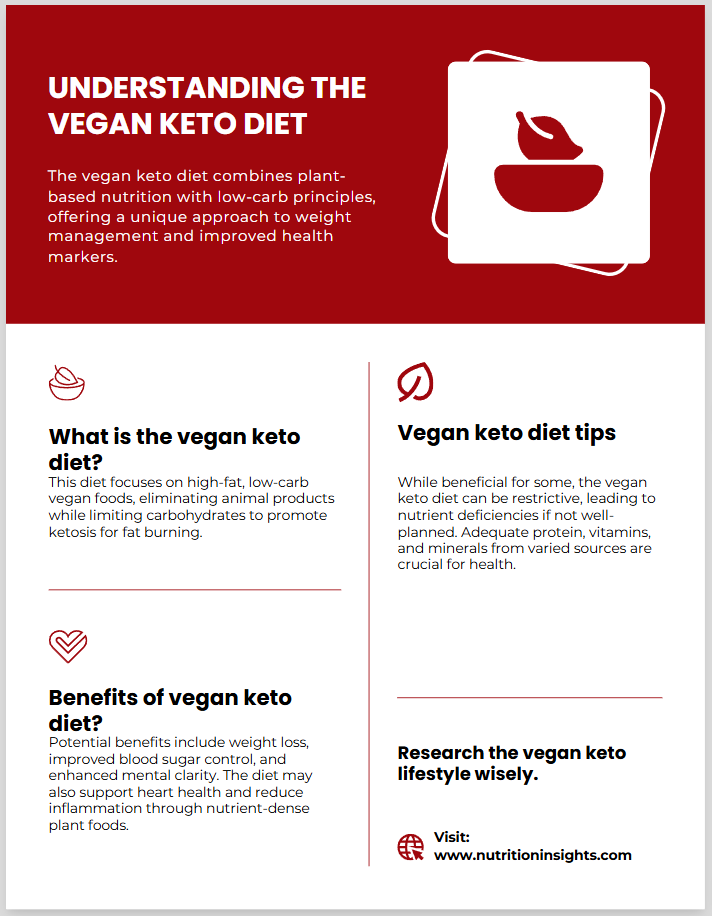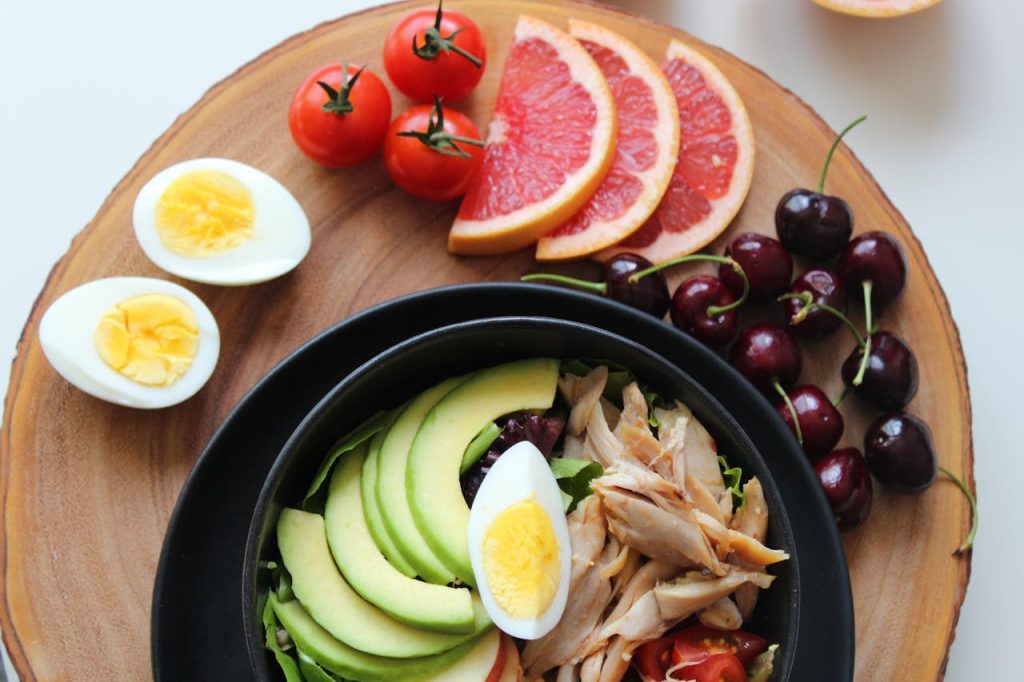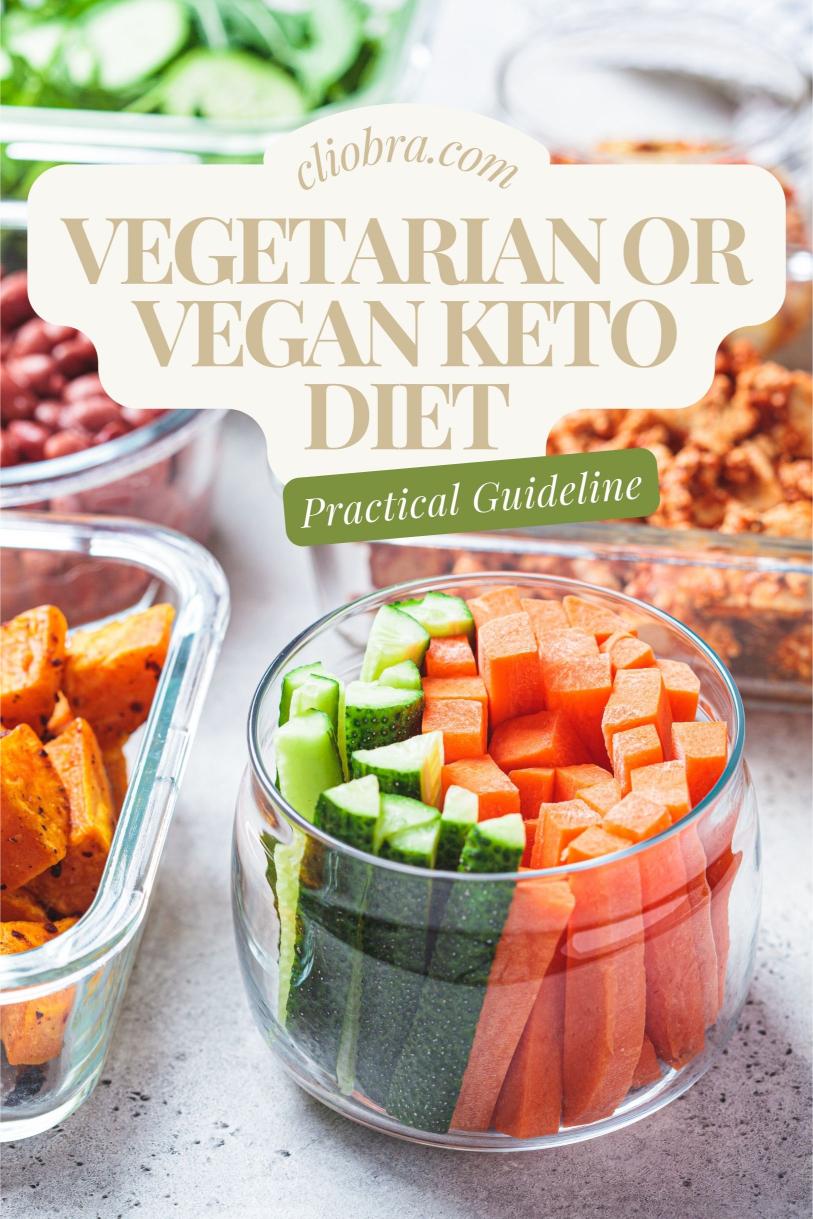Last Updated on January 23, 2025 by Arif Chowdhury
The keto diet has become a popular way for people to lose weight, manage blood sugar levels, and even improve overall health. But if you’re someone who prefers a plant-based lifestyle, you might be wondering, “Can you follow a vegetarian or vegan keto diet?”
It’s a question that’s gaining traction as more individuals turn to vegetarian or vegan diets for ethical, health, or environmental reasons. The good news is, it’s absolutely possible!
In this article, we’ll explore how to navigate the challenges of following a ketogenic diet while staying true to vegetarian and vegan principles.
We’ll discuss the key components of both diets, their compatibility, tips for success, and the health benefits you can expect. Plus, we’ll sprinkle in a few helpful facts and figures to keep things interesting!
So, grab a cup of tea, and let’s dive in!
Understanding Keto and Its Core Principles
The keto diet is based on high-fat, moderate-protein, and very low-carbohydrate foods. When you drastically reduce carbs, your body enters a state called ketosis, where it burns fat for fuel instead of carbohydrates.
While the keto diet has evolved over time, its foundation remains the same: very little sugar and starchy foods, replaced by plenty of healthy fats like avocados, coconut oil, and nuts.

The ketogenic diet is typically divided into these macronutrient ratios:
- Fats: 70–75% of your daily calories
- Proteins: 20–25% of your daily calories
- Carbohydrates: 5–10% of your daily calories
The high-fat intake on keto helps induce and maintain ketosis, while the protein ensures muscle preservation.
The challenge for vegetarians and vegans lies in how to get the necessary fats and proteins without relying on animal-based products. But fear not – there’s a way to make it work!
Can a Vegetarian Follow a Keto Diet?
The short answer is yes! If you follow a vegetarian lifestyle, it means you don’t eat meat, but you may still consume dairy, eggs, and other animal-based products.
This opens up a lot of opportunities to get the necessary fats and proteins while maintaining a low-carb intake.
Key Vegetarian Keto Foods
- Eggs: A fantastic source of protein and healthy fats, eggs can be prepared in so many delicious ways, from scrambled to poached, and they’re keto-friendly.
- Cheese: Many types of cheese are high in fat and low in carbs, such as cheddar, mozzarella, and cream cheese. They are also rich in calcium and protein, making them a great addition to a vegetarian keto diet.
- Nuts and Seeds: Almonds, walnuts, chia seeds, flaxseeds, and pumpkin seeds are great sources of fat and protein. A handful of these can keep you full and satisfied while providing the essential nutrients.
- Full-fat dairy: If you’re okay with consuming dairy, options like heavy cream, butter, and Greek yogurt can be used in a variety of keto recipes. They’re rich in fat and low in carbs.
- Non-starchy vegetables: Spinach, kale, zucchini, cauliflower, and broccoli are all low-carb vegetables that can be incorporated into salads, casseroles, or as side dishes.
In fact, the idea of combining vegetarianism with keto may seem challenging, but it’s easier than you think. Many vegetarian staples like avocados, nuts, and seeds naturally fit into the keto diet, and when you add dairy and eggs into the mix, you’re all set!
Can a Vegan Follow a Keto Diet?
Now, what about vegan keto? The answer is a bit more complex, but it is still very much possible. Vegan keto excludes all animal products, which means no eggs, dairy, or meat. So, where does that leave you in terms of fat and protein?
The key to a vegan keto diet lies in plant-based fats and proteins. You’ll need to get creative with food choices, but it’s absolutely doable with the right planning and knowledge.

Key Vegan Keto Foods
- Avocados: One of the best sources of healthy fats on a vegan keto diet, avocados are rich in monounsaturated fats and are very low in carbohydrates.
- Nuts and Nut Butters: Almonds, macadamia nuts, and walnuts, along with their respective nut butters, provide both fat and protein. They’re perfect for snacking or adding to smoothies.
- Coconut Products: Coconut oil, coconut milk, and shredded coconut are all great for vegan keto. They’re high in fat, especially medium-chain triglycerides (MCTs), which are easily converted into ketones by the body.
- Tofu and Tempeh: These soy-based products are fantastic sources of protein and can be used in various dishes. Be sure to choose organic, non-GMO options.
- Olives and Olive Oil: Rich in monounsaturated fats, olives and olive oil are essential staples in a vegan keto kitchen.
- Leafy Greens: Kale, spinach, and arugula are not only low in carbs but also packed with essential vitamins and minerals.
- Seitan: A wheat gluten-based protein source, seitan can be used in various vegan keto recipes for its high protein content and versatility.
One major consideration for a vegan keto diet is getting enough protein. Since most plant-based proteins are incomplete (lacking one or more essential amino acids), it’s essential to vary your protein sources and ensure you’re getting a wide range of amino acids.
Important Challenges and Considerations
While both vegetarian and vegan keto diets are achievable, there are some challenges to keep in mind:
- Getting Enough Protein: This can be particularly tricky for vegans, as many plant-based protein sources are also high in carbs. Tofu, tempeh, and seitan are great protein-rich options, but you’ll need to plan your meals carefully to avoid exceeding your carb limit.
- Maintaining Nutrient Balance: The keto diet can be low in certain nutrients like fiber, magnesium, and potassium. For vegetarians, this isn’t as big of an issue, but vegans may need to supplement or include more fortified foods like nutritional yeast, leafy greens, and nuts.
- Possible Micronutrient Deficiencies: Vegan keto dieters may be at risk for deficiencies in vitamin B12, iron, and omega-3 fatty acids. Supplementation or careful food choices are necessary to avoid these deficiencies.
- Meal Planning and Prep: Both vegetarian and vegan keto diets require careful meal planning and preparation. You’ll need to ensure your meals are balanced, low in carbs, and packed with the right nutrients to maintain ketosis.
Health Benefits of a Vegetarian or Vegan Keto Diet
Both vegetarian and vegan keto diets come with impressive health benefits. Let’s look at some of the major advantages:
- Weight Loss: A well-planned vegetarian or vegan keto diet can help you lose weight. By reducing carbs and increasing fat intake, your body begins to burn fat for energy, leading to weight loss.
- Improved Blood Sugar Control: Several studies have shown that the ketogenic diet can help regulate blood sugar levels, which is especially beneficial for those with type 2 diabetes or insulin resistance.
- Enhanced Mental Clarity: The ketones produced during ketosis are an excellent fuel source for the brain. Many keto dieters report increased focus and mental clarity.
- Lowered Inflammation: Both vegetarian and vegan diets are rich in antioxidants, which help combat inflammation in the body. Combining this with the fat-burning benefits of the keto diet can promote overall health.
Plant-Based Keto – A Win-Win Combination
So, can you follow a vegetarian or vegan keto diet? Absolutely! Whether you choose a vegetarian or vegan approach, it’s possible to maintain ketosis while staying true to your plant-based values.
The key is to carefully plan your meals and make sure you’re getting all the nutrients you need without going over your carb limit.
By including healthy fats, plant-based proteins, and a variety of low-carb vegetables, you can thrive on a keto diet that fits your ethical and health preferences.
As more people explore this unique combination, it’s clear that the vegetarian and vegan keto diets are here to stay. So, roll up your sleeves, get creative in the kitchen, and embrace this exciting and nutritious way of eating!
